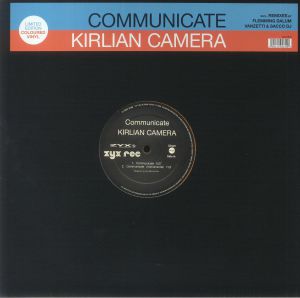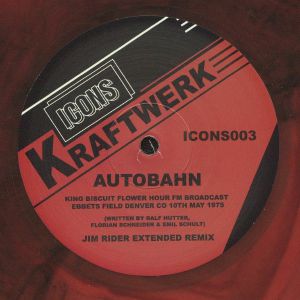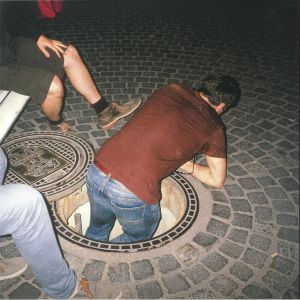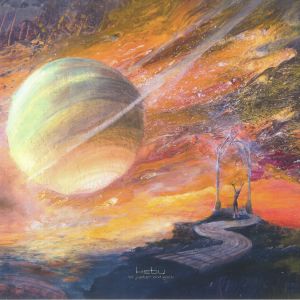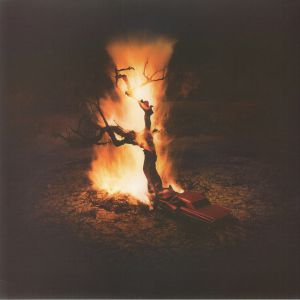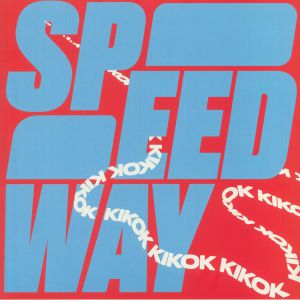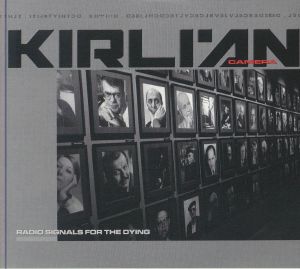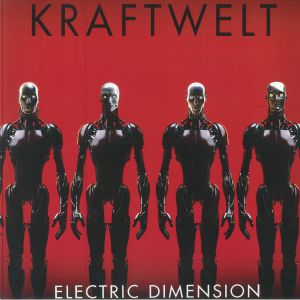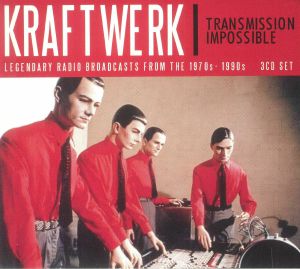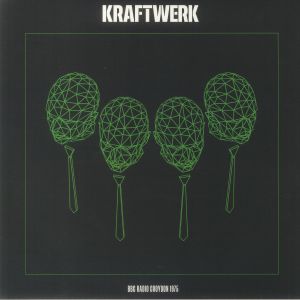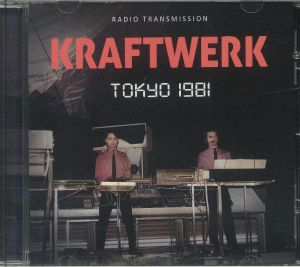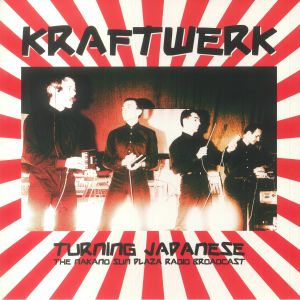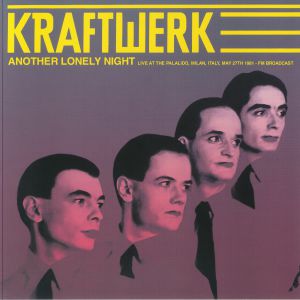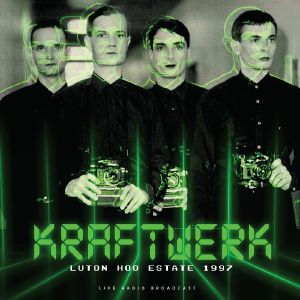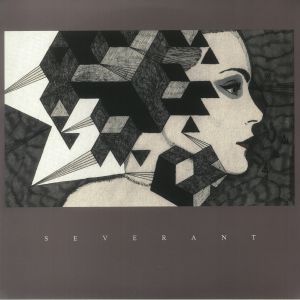Filter
Genre
在庫状況
レーベル
Featured
リリースタイトル
タグ
Back catalogue:
Juno's full catalogue of
シングル
Review: Karolina BNV is not to be messed with, putting it lightly. The Berlin-based producer has garnered a loyal following among fans of EBM, New Beat, industrial, electro-goth and robot sex droid fetish production scenes. The latter we just made up but hopefully you get what we're getting at. Descriptions aside, she follows her 'Lessons On Good Behaviour' release with four more tracks born from a terrifying future we're probably already living in, we just don't really know it yet. From the apocalyptic sludge and punch of 'Unforgivable Decisions', to the electro rave squelch and staccato percussion of 'Context Abuse', the two tracks roll out relentless grit and grime. Then you have '1988' and 'Germany Calling', with their retro futurism, acid house totems held high in the air for all to see that there is still some resistance to the robots.
… Read more in stock $18.73
Review: Hard-hitting Italo/darkwave from Italian group Kirlian Camera, a longtime act in the genres and one of their many defining bands. 'Communicate' is reissued from an initial release in 1983, and is as dubious and 'dark' as this kind of music can get, sounding like what would have happened to Talking Heads if each member had been given a hoverbike and rode it into a Miami sunset. Remixes from Flemming Dalum and Vanzetti & Sacco appear on the B-side - while brightening, warming and changing the instruments in parts, they prove little needs to be altered about the track in order to bring out its best parts.
… Read more in stock $18.45
Review: Next up on Bordello A Parigi is the prolific Kirill Junolainen under his Konerytmi alias with a four-track EP bridging disco, Italo, synth pop and wave. The title track is an emotive analogue ride full of glittering synths and distant melancholy, and is followed by the icy electro of 'Klassikkoelokuva' with crisp claps and bending basslines. On the flip, 'Hirvijarvi' takes a slow, sci-fi-inspired journey through spacey synths and probing percussion. Closing cut 'Uusiaalto' blends computer chirps, soaring strings and fractured drums for a bold yet fragile finish. It makes for a colourful showcase of Konerytmi's breadth and is melodic, mysterious and unmistakably good.
… Read more in stock $17.61
Autobahn (Jim Rider remixes) (limited red smoke vinyl 12")
Cat: ICONS 003. Rel: 25 Jul 24
Review: 'Autobahn' by Kraftwerk, released in 1974, is a seminal track that redefined the future of electronic music. Its significance lies not only in its innovative use of synthesisers and electronic instruments but also in its ability to evoke a specific visual and emotional landscape. Here, the song's repetitive, motorik rhythms are given an overhaul - or more specifically three - by Jim Rider, a regular at Lee Burridge's All Day I Dream parties. They're beefed up for the floor, certainly, but maintain the kind of delicate touches that makew the original such a great listen.
… Read more in stock $16.49
in stock $15.37
Last Place On Earth (feat Audrey Danza/Affekt Unit remixes) (12" limited to 100 copies)
Cat: PHLX 005. Rel: 15 Jul 24
Review: The superb Philoxenia Records, which is spearheaded by Luigi Di Venere and Neu Verboten, here unveils a coveted addition to its collection with the the super limited Last Place On Earth EP from Vilnius-based Dovydas Platakis aka Jokios Kulturos. It's a cinematic work that immerses listeners in a dystopian realm that blends avant-garde tones with manga-inspired cyberpunk vibes. Each track serves as a gateway to a world where technological progress intertwines with societal decline, which is of course often the focus of classic cyberpunk literature. Di Venere and Verboten also combine under their Affekt Unit alias to deliver captivating remixes and bring trance and tribal techno elements to the party.
… Read morePlayed by: Alexis Le-Tan, Juno Recommends Techno
in stock $19.29
アルバム
To Jupiter & Back (gatefold 180 gram vinyl LP + poster)
Cat: ZYX 211901. Rel: 24 Feb 23
in stock $19.84
Violet Drive (limited gold vinyl LP + insert (indie exclusive))
Cat: PIASR 1350LPX. Rel: 23 Mar 23
Review: Kerala Dust are an indietronica trio hailing from Berlin, and their upcoming album 'Violet Drive' is rightly described by them as a 'pan-European dream'. Recorded between Berlin and a remote Swiss Alpine studio, this is a funky, dark and sumptuous vocal dance project, replete with an overarching nighttime swing and glossy shimmer. Rather than one for twangy, sunburnt all-American road trips, we imagine this one is far better suited for drives across milder Scandi landscapes at night.
… Read morePlayed by: Juno Recommends Experimental
in stock $15.94
in stock $19.56
in stock $17.88
in stock $17.05
Electric Dimension (reissue) (limited red vinyl LP)
Cat: CLOLP 5024. Rel: 28 Mar 24
in stock $19.85
Cat: ETTB 141. Rel: 17 May 22
Von Himmel Hoch (CD1: From A live FM Broadcast Recorded At Karussell Der Jugend, Soest, Germany, 15th November 1970)
Numbers (CD3: From A live FM Broadcast Recorded At Nakano Sunplaza, Tokyo, Japan, 7th September 1981)
in stock $17.88
Review: Kraftwerk's 1975 performance at Fairfield Hall in Croydon is the stuff of legend. Finally it is available as a high quality audio pressing that allows you to relive all its glorious futurism. The show was broadcast on radio as part of a short tour of the UK that came after the release of the German computer music pioneer's hugely popular Autobahn. It features tracks from that album as well as 'Die Sonne, Der Mond, Die Sterne' and 'Showroom Dummies.' A real piece of electronic music history that will spice up any collection.
… Read morePlayed by: Juno Recommends Experimental
in stock $15.09
in stock $15.94
Cat: MIND 838. Rel: 11 May 23
Review: Recorded in 1981, Turning Japanese captures Kraftwerk at the absolute height of their creative dominance, but sometime before their true induction into the household name superstar category of artists. Still representing a very forward thinking, boundary pushing and - as a result - specialist sound, this nine-track live recording feels like yesterday's tomorrow.
Opening with a stunning neo-classical synth overture, we're then taken on a journey through the mind of the man machine, an industrial yet somehow strangely human proto-electro world that is defined by order and structure, while still allowing for enough funk and groove to make sure feet, hips and more move seemingly of their own volition. Perhaps not the most insightful take on the pioneering German band - nothing here that hasn't been said before - nevertheless we hope it goes someway to describing how precise, refined and overwhelmingly infectious they can be on stage.
… Read moreOpening with a stunning neo-classical synth overture, we're then taken on a journey through the mind of the man machine, an industrial yet somehow strangely human proto-electro world that is defined by order and structure, while still allowing for enough funk and groove to make sure feet, hips and more move seemingly of their own volition. Perhaps not the most insightful take on the pioneering German band - nothing here that hasn't been said before - nevertheless we hope it goes someway to describing how precise, refined and overwhelmingly infectious they can be on stage.
in stock $15.09
Cat: JACK 054. Rel: 29 May 24
in stock $19.56
Luton Hoo Estate 1997 (gatefold 180 gram green vinyl LP)
Cat: VC 97145. Rel: 06 Dec 24
Review: This gatefold green vinyl record captures a rare and electrifying live performance from the pioneering electronic music legends. Recorded at their 1997 Tribal Gathering festival headline, it's a showcase of the band's iconic sound that blends groundbreaking synth-driven melodies with hypnotic rhythms and futuristic themes. Performing classics like 'Autobahn,' 'The Robots' and 'Computer World,' Kraftwerk delivered a spellbinding experience that bridged their innovative past and continued influence on modern music all set against the historic backdrop of Luton Hoo Estate. It features plenty of their classics from the time, as well as - shockingly - a new track, titled 'Tribal Gathering' (and also sometimes referred to as 'Luton') that was written especially for the gig, never recorded in the studio and only ever played a handful of times. A great nostalgic trip.
… Read more in stock $17.61
in stock $16.49
Review: After the massive impact of Vex'd in the breakthrough years of dubstep, it was big news when Jamie Teasdale chose to swerve in his own direction and emerge as Kuedo. Released in 2011, Severant was a bold statement of intent which didn't wholly shirk what had come before, but placed emphasis on the kind of romantic synthesis you'd readily associate with Vangelis and saw trap and other influences sneaking into the mix. In hindsight, Severant is typical of the times we live in, drawing on a glut of influences and presenting its own idiosyncratic vision, but above all that the emotion and intent of Teasdale's ideas make it an enduring, captivating listen.
… Read morePlayed by: Juno Recommends Leftfield
in stock $17.88
Power Is The Pharmacy (180 gram vinyl LP + MP3 download code)
Cat: CST 172LP. Rel: 11 May 23
in stock $19.88

 USD
USD






